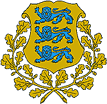Estonians are justifiably proud of their achievements in the information technology (IT) sector, as the tiny nation has quickly positioned itself ahead of many of European nations competing in the new economy. National Internet penetration is much higher than in many leading European Union nations, and three mobile phone operators are actively competing in a broad market to provide innovative services, including plans that allow customers to pay for parking over their mobiles.
The public sector has invested heavily in bringing Internet access to every small country town and village, many of which are now able to boast of Internet connections that bring nearly every home access to the Internet superhighway and revamped government websites alike. Meanwhile, local banks have for years been providing online solutions, and even their Scandinavian counterparts have admitted that they have a lot to learn from Estonian banks.
Estonian e-commerce firms now operate throughout the Baltics - in Latvia and Lithuania - as well as farther afield in Hungary, the Czech Republic and other countries in Central and Eastern Europe, where they have been both taking over local concerns and creating new enterprises.
Meanwhile, private companies and the government have teamed up to establish an institute of higher learning focusing on IT education, presently slated to open in fall 2000.
Room for change
None of this is to say that there is no need for change in the Estonian IT sector. One of the main challenges faced by firms seeking to profit from this e-frenzy is how, exactly, to expand and market their knowledge-base and abilities on the international market, as Estonia's domestic market is simply too small to create new value in the long-term.
A solid base of IT knowledge, high domestic Internet connectivity, business experience in Latvia and a high rate of investment from the Estonian public sector are simply not sufficient in themselves to guarantee success in the global marketplace. Internationally successful companies and their business models show that e-commerce is not only about technology, but also requires innovative strategies, excellent management skills and a good return on investment through solid marketing campaigns.
Technology certainly enables the execution of many good ideas, but solid IT skills alone will relegate Estonian firms to positions as sub-contractors to larger Western firms.
| Travelling to Estonia soon? Choose Hotels Central at HotelsEstonia.com to reserve a hotel online at a great price. |
Who in the West - or anywhere else in the world, for that matter - knows of Estonian IT or e-commerce firms? Few, in fact, know even that Estonia has a well-developed infotech infrastructure. Some of the fault surely lies with Estonian firms themselves. CV Online, for example, is one of the leaders of Estonia's IT sector, and attracted USD four million in venture capital at the beginning of this year. Yet in trying to penetrate new markets in Eastern and Central Europe, CV Online persists in positioning itself as a pan-European firm rather than an Estonian one.
Breaking the mould
If Estonian firms are to break out of this mould, they need more than government investment in IT infrastructure and a solid domestic reputation.
The Estonian educational system is lagging in meeting the demands of the new economy, and is in need of substantial reform to guarantee that it can produce skilled employees who will be competitive on the world market. The importance of education to the establishment of a successful and durable new economy was, in fact, underscored last year at a Silicon Valley conference by Tim Draper, a partner in the highly praised American venture capital firm, Draper Fisher Jurventson.
Government involvement should not end there, though, as it must also work to liberalise its treatment of foreign workers. At present, it is simply a nightmare for skilled foreign infotech workers to obtain the work and residency permits necessary to secure employment in Estonia.

|
Yet, it is not only the government that must adjust to the new realities of the Internet economy, as the nation's business culture needs to encourage more risk-taking and entrepreneurial spirit. At the moment, many local infotech deals are based on a corporate culture that prizes deal-making through old boys networks instead of through free and open market competition.
If Estonia would only concentrate on fundamental stumbling-blocks such as these - and solve them quickly - the nation would be better served than through continued public spending on IT infrastructure.
Estonia must progress significantly if it is to capitalise on its current position. However, if it can address these fundamentals, it will not only retain the best of the domestic crop, but will also attract talented foreigners, making E-stonia an attractive place for new economy professionals from the world over.
Meelis Kitsing, 4 July 2000
The Author:
Meelis Kitsing is a partner in Ulmann Marketing, an Estonian e-strategy firm; he is also a member of the Tallinn City Council.
Moving on:
- Read more about Estonia in this issue
- Buy English-language books on Baltics through CER
- Return to CER front page




